
A Conversations' EXCLUSIVE: Ira Dorsey of "The Dayton Family"
The warning not to judge a book by its cover couldn't have known anything about Ira Dorsey,33, of Flint, Michigan when it was first spoken; but you would believe it was written with him in mind once you sit down to talk to him. As founder of the gangster rap group The
In the 90s he was respected in the industry, rapping about the world as he knew it and speaking at times from his own experiences. His sincerity and genuineness is unmistakable as he proves that true talent is not based on a catchy hook but the realness of someone who has known personally of the message he preaches over the airwaves and on stage.
Named for the neighborhood that gave them life--and took so many others---
Dark days, though, loomed ahead. Like others in the entertainment industry and beyond, Dorsey has had his share of legal woes and scathing reports in the media---but he has risen above it all to show that he is really in this game to stay. In 2005 his lyrical voice was silenced, creating a void for the realness and flow that only he seemed to be about to create. Now three years later he has emerged again, joining with Stanley Clark, President of the Mississippi-based For The People Productions marketing firm to not only bring his skills to the South but look for like-minded talent to spread what the Dayton Family is all about in 2008.
This is an exclusive interview you will find no where else, letting you behind the name of a man that many love, hate, respect and fear. As Chief of Staff of FTP and President of Conversations Book Club, my interview with Dorsey was not just to announce his return to music but the writing of his story as well. It is an honor for me to help tell this story, because I believe it will help many who might be in a similar situation. I want to give the world a good look at someone who has been counted out time and again, only to silence his critics with what has been the bases of his life since the beginning: His truth.
This is our conversation.
Ira, thank you for taking out the time to talk with us. I want to take you back to the beginning of your life in
I was a young guy, around 10 or 11, writing music, but it was in my early teens that I started to take it seriously. My uncle was a dj and I used to play his mixtapes. I was a Def Jam man, listening to everything from L.L. Cool J to A Tribe Called Qwest. It was real music back then. Some of the tapes I played so much that they broke.
Did you know at that time that you wanted to be an entertainer like the artists you were listening to?
Now then. My career at that time was in the streets. The music was a way of entertaining my neighborhood. You see, we were off
So when did you see that music could give you the career that the streets were providing you?
I met a guy named Shoestring who also rapped and we started going back and forth spitting rhymes. Someone told us that we needed to go to the studio. The first day I steeped in the booth I was hooked. I knew it right then. Once in the studio I didn't want to leave. Even if I didn't have a way to get there I would walk. That was what I wanted. It was Shoestring that also gave me the name Bootleg, because anything you wanted, I was able to get it somehow. It all continued from there.
I want to go back to what you said about working the streets. What initially brought you to that world?
You have to understand that I grew up without a father and was pretty much having to fiend for myself. I turned to the streets for guidance and leadership. I didn't know any better, so as I grew in the game I was leading others to do what I did. All of us were going astray.
Once the group the
It was all about getting the word out there. We were out there performing, and the people loved us. This was before we could afford to even have an album. There was one song at the time that we were really pushing, and I used my connections in the inner city to get the finances we needed to fuel the movement we had created. We had 10,000 cds sold in three days or so.
When you compare the two worlds---the streets and the music industry---are you surprised at how alike they are?
Not at all. It is about who has the best product and who markets themselves and their product the best. There is really nothing different about them, just a different product. I had to work at getting my music out there just like I had to work at getting my respect on the streets.
Ira, I found the lyrics to your song "
Definitely. If you talk with anyone in
Let's talk about the line that says "Puts bullets in a brother at a club to ignorent." One thing that has been connected with hiphop is the violence it seems to portray. How have your experiences been influenced by what seems like senseless violence?
I can talk about that because the life I was living at the time put me dead in the middle of it. I was ignorant. The violence couldn't be too far from us because the violence was us. It's just that simple. That's why I can tell them what happens out there. I have learned the power of being free. I have widened the range of the things I'm involved in. I know you can't make money, music or any real moves when you are locked up or dead.
As you can imagine, Ira, there is alot that can be found online. That is where I found those lyrics. Something else that I found about you in my research was not as flattering. A poster to an online bulletin board said this: "
I would say that you are smarter than that to believe I would do something like that. Believe me, if that was true I wouldn't be here talking with you right not, and that's real. I wouldn't be here. You know, it's like anything else. I don't deal with just anybody, so people are always trying to figure out who I am. To know me you have to be in my inner circle. Those that aren't have to create their own Ira Dorsey. Anything that could jeopardize my freedom you better believe that I wouldn't be out there living it or rapping about it.
You mentioned rapping about things that may or may not be a part of the artist. We are told by some that it is our job to realize that the entertainment industry is just that: entertainment. I'm wondering if you think there is a thin line between what is real and what isn't in the music business.
There is a very thin line between what a rapper says and what a rapper does. Some even cross over the line and get caught up. For me, some try to tie me too close to the music I make. I might say something on a beat, but that doesn't mean I really do that. I'm a messenger of the streets. I write about what I know and what I see. That's what I do.
It has been three years since your last release. The independent album, FAST LIFE, sold over 60,000 units on its own. Do you think the industry has changed alot since you were on the scene?
Definitely. It's not the same game. It's not about painting a picture anymore. It's about a catchy hook and beat. That's not me. I'm going to entertain you, but I'm gonna continue to put my heart in everything I do.
You and I were connected by
The South is where it should've been all the time, to be honest with you. That is where our fan base really is. Lots of love from the South. We are always well received there. Look, this move was more than about entertainment. This is business. For me, it's like an athlete. I'm in the fourth quarter of the game, and if I'm going to do something it has to be now.
I know the people in the South that have been looking to break into the industry will be glad to hear that. What are you looking for when it comes adding to the family?
They have to come with it. I want them to have a strong work ethic, be serious about their business and understand that I'm trying to do this write. If you are on the fence about whether to do what is right or wrong, then I can't deal with you. Most of all, you have to have genuine talent. I want people to come with us and be so good that it makes me step my game up. Some labels don't want people among them that are better than them. That's not me. I want you to grow bigger than me. Give me all you got.
Ira, I know you are eager to get back out there with your music, but what else would you like to do?
I want to do everything: books, tv and movies. What I really want to see is a documentary of The Dayton Family. I want to take you behind the scenes of the neighborhood that made me.
Thank you for giving me this access into your life. What would you like to say to the people who are reading this interview and learning about you for the first time.
I would say that if you ever want to hear powerful music then what I bring for you. If you can relate to ever being the underdog or ever at the bottom of anything, then I have the music that will heal you of all the pain you have experienced. I can lift you up.
And to your fans? What would you like for them to know?
I love all of you for sticking by me and not jumping ship like some have done. Believe me when I say that I am going to bring the heat. You will be seeing me soon. I am going to go out of my way to hit each of your cities soon. Just give a minute. I want you all to know that everything I do is for you.
To find our more information about Conversations Book Club, visit http://www.thebestbookclub.info. Additional information can be found about the Dayton Family at http://www.daytonfamilysouth.webs.com.






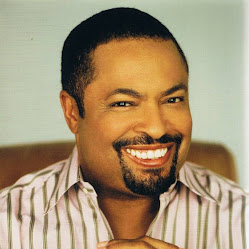
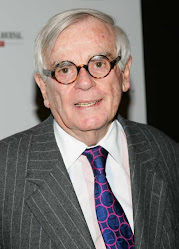




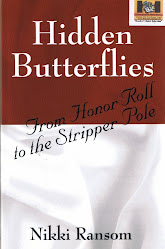
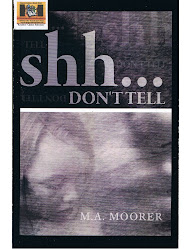


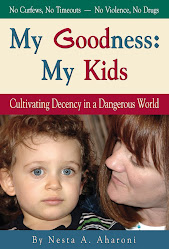





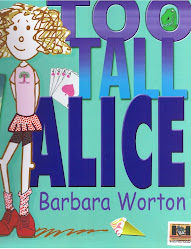

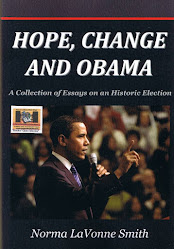

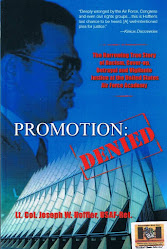



No comments:
Post a Comment